Igor Mann: ‘Answer yourself the question — how are you better than your competitors’
The guru of Russian marketing — about the transformation of marketing market, about “Klondikes”, lifebuoys, and “perpetual motion machines” for businesses
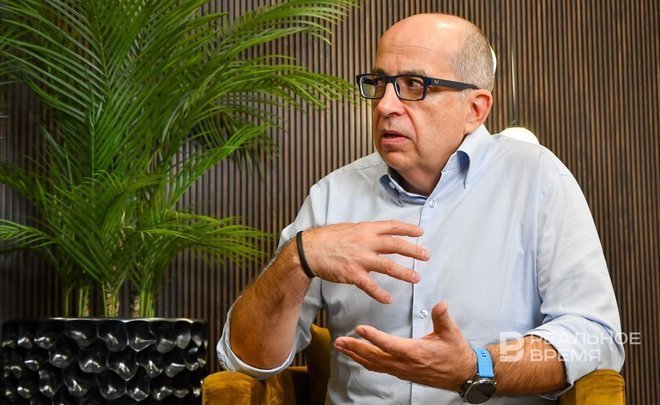
Russian business has become more rational in its approach to marketing costs in the context of the processes taking place in the economy today. At the same time, the “story and reel experts” who have flooded the market in recent years are now forced to look at things more globally and study classical principles. Igor Mann, a well-known economist and marketer, notes these and other trends in an exclusive interview with Realnoe Vremya. He is called the guru of Russian marketing, not the first generation of marketers and PR specialists are studying by his books. Igor Borisovich came to Kazan to record lectures for the course “Digital Marketing” within the framework of the national project “Demography” at the site of the NTI Centre for Educational Competencies (NTI CEC). In the conversation with us, he talks about global trends, “magic pills” for businesses, and how marketing in Russia differs from Western marketing.
How Russian marketing has changed and what to do about it
You have been working in marketing for more than 30 years. How has Russian marketing transformed over these decades, can you identify some general directions?
Firstly, the teaching of marketing in Russia has improved over the years. They began to teach not only theory, but also practice. I hear and see that there are no complaints about the level of modern graduates. They teach with dignity, using good books. Without false modesty, I would like to note that a number of teachers also use my books, which allow them to give future specialists practical knowledge, not just theoretical foundations from American and European textbooks.
The second thing I would note is that interest in marketing as a whole has fallen. We live in conditions of overabundance of information, and this leaves its mark on the processes. We are now seeing numerous “story experts”, “reels experts”, who are more well-known than recognised marketing experts. And this is simplification, emasculation of marketing, reducing it to individual tools, and to social networks. A bet is made on one thing — for example, on collaboration. Or, for example, artificial intelligence. People lack a systematic understanding of marketing. Many people do not see the forest for the trees.
And third, Russian businesses as a whole have lost confidence in marketing.
What do we do about it?
I'll tell you about what I'm doing from my side. I try to influence the first aspect by writing books.
To the second problem — the lack of systematic thinking — I answer by coming up with the PRUV system. There is the classic 4P system — when we talk about marketing, considering the product, price, sales channels, and communication channels. How does the PRUV model differ from it? By that marketing in it is about attracting customers, working with the customer base and customer flow, retaining customers and returning them. If you ask me where the price, product and other components of the 4P system are in this system, I answer: and these will already be tools for the tasks described above. After all, if marketing does not deal with all this, it is not marketing, but some kind of nonsense.

I have the opposite starting point: we start with customers. You make more products — you have more customers. You reduce the price — there are even more of them
That is, you proceed from the goals of marketing, not from its means?
Yes. I start from what that the Americans have forgotten in their model. And if you ask them where the client is in their model, they answer: well, we have a product, price, channels — this is all for the client. I have the opposite starting point: we start with customers. You make more products — you have more customers. You reduce the price — there are even more of them. You find an additional sales channel — new customers come. And so on. It's all about customers.
And with the third trend that you have announced, what do you propose to do? With a drop in trust in marketing?
I propose to deal with this by simplifying the marketing system. Marketing is too complicated in its classical expression. I came up with the Growing system. It simplifies marketing. Yes, a lot of interesting and important things remain overboard, but business needs a quick result. Okay, I thought. “We need to throw away what should work “for a long time” and leave what will work here and now.”
In this form, marketing is reduced to 22 activities that allow you to quickly — in a month — increase turnover, sales, and even profit.
“Magic pills” and how to take them
Is it that simple?
I believe there are eight “magic pills”. If you take any of them, you can get a result. One of these tablets is positioning. Answer yourself the question — how are you better than your competitors. After all, this question is in the head of any of your customers. If simplifying, in relation to the product, the term “positioning” will be identical to the term “unique trade offer”, UTP.
Another “magic pill” is the price. You can increase profits by raising the prices of your product. But in order to do this, we should first raise its value. Otherwise, the buyers will leave, you will roll back, and you will also be left with great reputational losses.
Another “pill” is an increase in the number of sales channels. In one of my books, 16 sales channels are described, and you can go through a checklist on them — which channels you already have connected, and which ones you can add to them. I have written several books about “magic pills”, but, unfortunately, I often come across the fact that businessmen say: “We have no time to read.” It's disappointing.
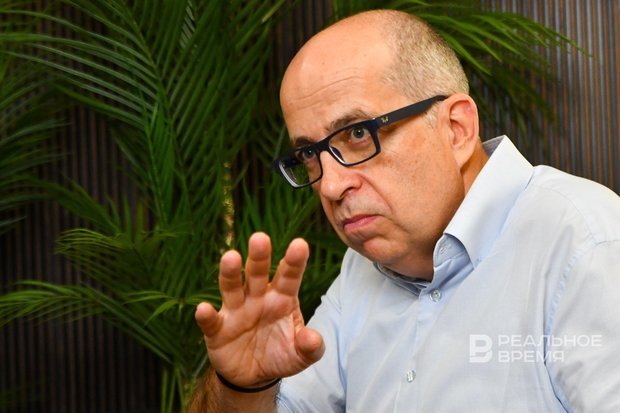
Try at least to call your mom this way. You will realise that you have finally had a really good conversation with her, without being distracted by your smartphone, what is happening outside the window, or anything else
Do you have specific recommendations on how to take these “pills”?
There are different tools. For example, “purchase thief”. Not the usual funnel, but thief! This is when you check all the joints in the trading communication along its entire length.
For example, you call to sell your product, but for some reason, it does not come to sending a commercial offer. So, you need to see what goes wrong during the call. Are you calling the wrong people? Don't know how to work out objections? Have you not learned how to bypass the “gatekeepers”? So, to increase your results, you first need to put the call process on track, make it effective. One of the methods that I recommend is to put dark glasses or a sleep mask on your eyes during a call. In this case, you “turn off” your vision, do not be distracted by external irritating factors. You are all in the call, focused on communication. Try at least to call your mom this way. You will realise that you have finally had a really good conversation with her, without being distracted by your smartphone, what is happening outside the window, or anything else.
Suppose the calls in your company are going well, and it comes to sending a commercial offer. But this is where communication ends. It means that the commercial offer is incorrectly drawn up. Or you have chosen the wrong format. Or there are unfortunate formulations in it. In this case, there are special services that notify you that your letter has been opened and read. After receiving the notification, you need to immediately call a potential counterparty with an offer to comment on your message. This will be a call to the right person at the best moment for you.
In this way, you can monitor each stage of the sale and diagnose the process, find weaknesses in it, in order to think further about what to do with it and how to “fix” everything. But, unfortunately, few Russian entrepreneurs really use all these tips. They are not up to receiving them.
“To be honest, I was glad when Facebook Instagram* and Facebook** were banned in our country”
Are there any features in Russian marketing that distinguish it from Western marketing? Is it possible, in principle, to “transplant” the Western model of running a business to the Russian market, or “we have something special”?
We are a little different. From communication with Western colleagues, I see that they have a greater respect for consultants. They listen to them, they are ready to learn. But in our country, they are definitely not ready to study, nor, moreover, to pay for it.
There was a period in my life when I worked as a marketing director at a large telecommunications company Avaya. He worked in Austria and was responsible for marketing in 74 countries around the world. The biggest shock for me was that I had a budget to pay for the services of business consultants. It was strange to me: why would I hire someone from the outside if I am a specialist myself? If I, a Candidate of Sciences, know everything well myself? Why should the company also pay them? And this European and American approach — “let's hire consultants, they will see what else we can do to improve our processes” — is a strong story that we do not have.
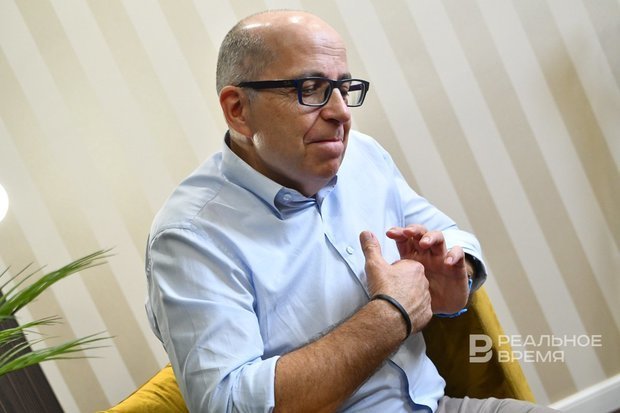
From communication with Western colleagues, I see that they have a greater respect for consultants. They listen to them, they are ready to learn. But in our country, they are definitely not ready to study, nor, moreover, to pay for it
Another difference between Western models is that they understand exactly what marketing is and apply it systematically. They are ready to work with both the price and the product. But in our country, all marketing comes down to promotion, which, in turn, is to social networks, and those to Instagram. At some point I even got bored and thought: “My God, maybe I should profile in a reels master?" After all, at some point, what I was telling about marketing was of no interest to anyone. Everyone was interested in taking courses on how to make stories or reels. And I talked about making a blockbuster product or promoting the concept of the “blue ocean”. Or about thinking through a pricing strategy — it's much more difficult than making reels.
To be honest, I was glad when Facebook Instagram* and Facebook** were banned in our country. And now, by the way, many “masters of stories” are interested in real marketing. They started reading books, including mine.
For someone, the online platforms that you listed were not just promotion tools. For a huge number of small businesses, these were direct (and often the only) sales platforms. After their withdrawal, the businesses are trying to move to other online platforms. How do you assess the success of this process?
Businesses were trying to find something that could become an alternative to these sites. It's no secret that entrepreneurs are mastering VKontakte, Telegram, Yandex.Zen, and Odnoklassniki. But unfortunately, most of them fail. Our sites could not provide the same level of service that was in Instagram. After all, targeted advertising was very well configured there. You knew how to reach your target audience, and the cost of the lead there was quite acceptable. Therefore, I think that so far there has not been a decent alternative. A lot of “Instagram killers” were announced in Russia, but, unfortunately, not a single site “has taken off”. I'm sorry that they couldn't do anything in our country — and probably they won't do anything anymore.

Crisis changes in Russian marketing and a “lifeline” for startups
During the Covid-19 pandemic, many companies were forced to transform processes — even to the point that they moved their employees to a remote location. And this transformation turned out to be painful for many. And what did you personally observe?
I can give an example of my own business — I am one of the founders of the Mann, Ivanov and Ferber publishing house. At one time, we were very impressed by the book Rework, which promoted remote work long before the pandemic. And therefore, when Covid-19 happened, we already knew how to work online and even employees were told when hiring that they would probably see colleagues once a year — on the company's birthday. By the way, many people didn't like it, because people loved working in the office.
Today, Russian businesses are also undergoing a sharp and harsh transformation. What are the main changes you can highlight in marketing processes?
We have already talked about the withdrawal of some online platforms from Russia.
The second important change is that the client has become more rational in the choice of marketing tools and in costs.
Third, the “middle class” is greatly shrinking. Relatively speaking, today the rich are becoming even richer, the poor are even poorer, but the middle class is disappearing, unfortunately. And this is definitely an unpleasant trend. First of all, because people postpone the decision to buy until the last — the structure of consumption has changed, purchasing power has fallen.
And the fourth thing we observe is that many businessmen have moved abroad. A number of them manage to open a business there, and they do not plan to return.
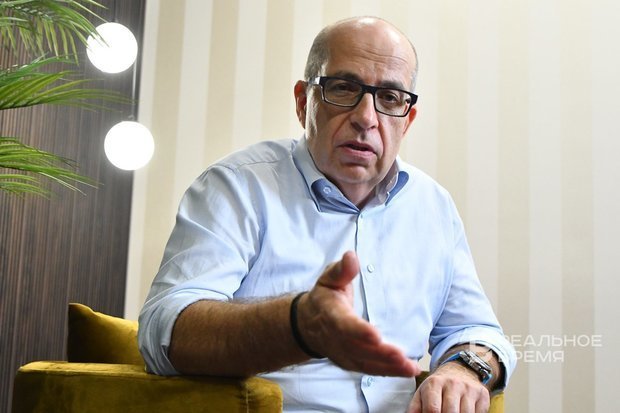
Relatively speaking, today the rich are becoming even richer, the poor are even poorer, but the middle class is disappearing, unfortunately. And this is definitely an unpleasant trend
How do you assess the current activity in the field of technology startups? Technoparks and IT parks “nurture” startups in which technological expertise is well developed, but with marketing, self-presentation and sales, everything is not so rosy. What would you, as an expert with thirty years of experience, suggest doing about this at the state level? And is it necessary to do this? Maybe it is more correct to act from the position of “whoever survives is well done”?
I think they should be taught. To be supported. It is necessary, “throwing them into the water”, to make a lifebuoy float next to them.
Perhaps, it is necessary to develop a training programme that will be built on the pains of a young business. To list, conditionally, 20 main problems of a technology startup — they are, as a rule, of the same type. Incorrect positioning, inability to change strategy in time, incorrect choice of the main strategy or target audience, inability to build communication with the client, ignoring competitors… Based on this, you can build a single programme — and distribute it as a textbook. This will help young entrepreneurs to form at least an initial understanding.
When I stand before the guys from IT parks and technoparks, I tell them all the time: “Guys, everything I tell other businesses should be relevant for you!” Positioning, points of contact, and working with clients according to the PRUV model. A startup can't afford to lose customers, so retaining them is a critical issue.
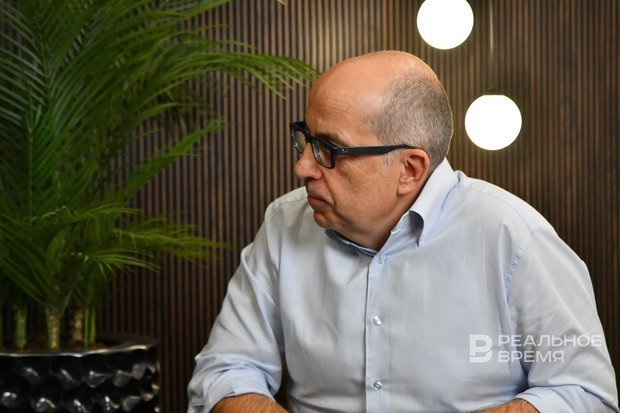
When I speak to the guys from IT parks and technoparks, I tell them all the time: “Guys, everything I tell other businesses should be relevant for you!”
Many startup managers hope that they will not have to figure out anything on their own — they will hire a great marketer, and everything will be fine.
But the business manager must also understand the basics of marketing. Simply because at first a startup, as a rule, simply cannot afford a really cool marketer. This is an expensive pleasure.
Reference
For assistance in organising the interview, Realnoe Vremya thanks the founder of the NTI Centre for Educational Competencies, Regina Tsygankova
*, ** — social networks banned in Russia